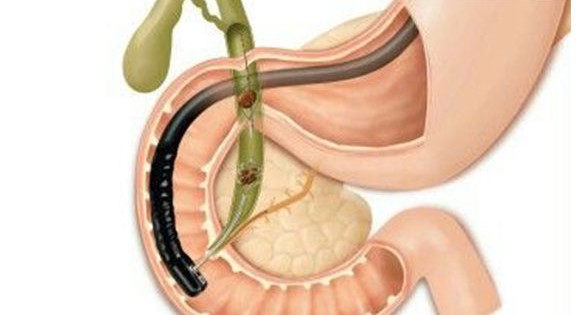Procedure used to diagnose diseases
- Gallbladder
- Biliary system
- Pancreas
- Liver
Endoscopic Retrograde Cholangiopancreatography is a diagnostic procedure to identify diseases of the digestive system. It is an advanced endoscopy procedure that combines X-ray with a standard endoscopy process.

ERCP Test at Mission Gastro Hospital Ahmedabad
An ERCP test can be used to evaluate symptoms of pancreatic, liver, gall bladder or bile duct diseases and even treat the conditions. In the ERCP surgery, and endoscope is passed through the mouth into the duodenum. The gastroenterologist inserts a catheter which adds dye into the bile duct to have the X-rays taken. This allows thorough examination of all the organs in the region.
ERCP Procedure Steps
There are three distinct ERCP procedure steps: before, during and after the test.
Before Procedure
If you are on any medications, you have to inform your doctor beforehand. You must also stop food intake about 8 hours before the test and stop ingesting fluids before 1-2 hours. This ensures that relevant organs are empty during the ERCP test.
Procedure
You are given a sedative during the ERCP procedure that makes you drowsy and a local anesthesia to ease the movement of the endoscopy tube down your throat. You will swallow to move the tube further into the duodenum. Sometimes, a little air is blown in to have a better view of the inside. Another thin tube is added in the endoscope that goes to the bile duct and dye is added to the ducts and pancreas for a clear visual and examination. Sometimes your doctor might take a tissue sample for further laboratory diagnosis.
After Procedure
Once the procedure ends, you are kept under observation for a couple of hours until the anesthesia and sedatives lose effect. You can resume your diet and continue any prescribed medications you take. Your gastroenterologist will inform you of the results of ERCP procedure
ERCP Complications & Reasons
Dr. Chirag Shah is a gastrologist specialist with years of experience in performing ERCP procedure. He will explain all the potential complications that arise in the procedure before you appear for the test. Some basic details of ERCP complications that you can keep in mind are as follows: Complications are very rare but not impossible. For instance, pancreatitis can occur if the contrast dye is irritating to the pancreatic duct in your body. If there was any surgery performed like stone removal then there might be little bleeding. However, if you experience any complications after the procedure, Dr. Chirag is experienced to handle all forms of symptoms and treat them. Know more about various other types of endoscopy procedures at Mission Gastro Hospital today.




